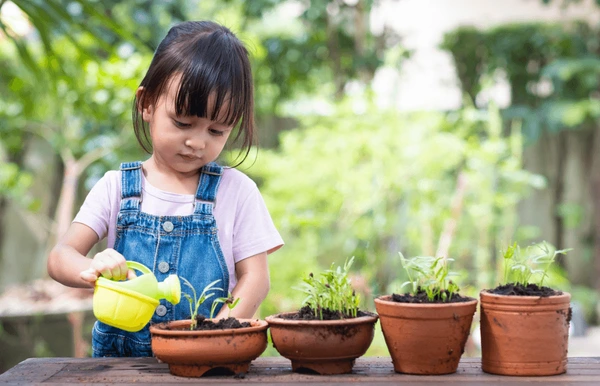The Foundation of Lifelong Learning
The early years of a child’s life are a magical period of exploration and discovery. During this time, cultivating curiosity and care is crucial for their holistic development. This formative phase sets the foundation for lifelong learning, social interaction, and emotional well-being. This guide explores how parents, educators, and caregivers can nurture these vital qualities in young children, ensuring a robust start to their lifelong journey of learning and growth.
The Role of Early Childhood Education
- Engaging Environments for Growth Early learning center Beverly Hills plays a pivotal role in fostering an environment conducive to curiosity and care. These kind of centers are designed to provide a stimulating atmosphere that encourages exploration, creativity, and social interaction among young children.
- Educators as Facilitators Skilled educators in early learning settings act as facilitators, guiding children’s natural curiosity and helping them develop empathy and understanding towards others. They create activities that are both fun and educational, striking a balance between structured learning and free play.
Cultivating Curiosity: The Quest for Knowledge
- Encouraging Exploration Encouraging young children to explore their surroundings allows them to discover new things, ask questions, and develop problem-solving skills. This exploration can be as simple as outdoor play, experimenting with different materials, or interactive storytime.
- Creating a Stimulating Home Environment At home, parents can cultivate curiosity by providing diverse learning materials, such as books, puzzles, and age-appropriate science kits. Designating a specific area for exploration and creativity can be particularly effective.
Fostering Care and Empathy
- Modeling Empathetic Behavior Children learn a lot by observing adults. Demonstrating empathy and care in daily interactions teaches them how to understand and respond to the feelings of others.
- Activities to Promote Empathy Activities like role-playing, reading stories about diverse characters, and group games can help children understand different perspectives and the importance of caring for others.
Interactive Learning: Blending Fun with Education
- The Power of Play Play is a fundamental aspect of early learning. Through play, children learn to interact, negotiate, resolve conflicts, and develop critical thinking skills. Educational toys and group play activities are excellent for this purpose.
- Technology as a Tool In moderation, technology can be a valuable tool for interactive learning. Educational apps and digital games can complement traditional learning methods and keep children engaged in a fun and interactive way.
The Significance of Nature in Early Learning
- Outdoor Learning Experiences Regular exposure to nature is vital for a child’s development. Activities like gardening, nature walks, and outdoor scavenger hunts help children develop a sense of wonder and respect for the environment.
- Benefits of Nature Play Playing in nature not only stimulates curiosity but also promotes physical health, reduces stress, and enhances cognitive abilities.
Language and Communication Skills
- Early Language Exposure Early exposure to language through reading, storytelling, and conversations is critical for language development. It enhances vocabulary, comprehension, and communication skills.
- Encouraging Expression Encouraging children to express their thoughts and feelings verbally helps develop their communication skills and emotional intelligence.
Social Skills and Group Dynamics
- Learning to Interact Group activities in early learning settings teach children how to interact socially. They learn to share, cooperate, and work as part of a team.
- Managing Emotions and Conflicts Guiding children through their emotions and teaching them to resolve conflicts amicably is crucial for developing emotional maturity and social competence.
Parental Involvement: A Key Ingredient
- Active Participation in Learning Parental involvement in a child’s learning journey is invaluable. Participating in school activities, regular discussions about their day, and showing interest in their learning foster a supportive and encouraging environment.
- Home as the First School The home environment is a child’s first school. Parents can reinforce learning through everyday activities, such as cooking, shopping, and even household chores, turning them into educational experiences.
Nurturing the Seeds of Tomorrow
In summary, the early years are critical for cultivating curiosity and care in children, forming the bedrock of their future learning and development. Whether it’s through an early learning centre, at home, or in outdoor settings, every interaction and experience plays a significant role in shaping young minds. By providing stimulating, caring, and supportive environments, we can nurture these young sprouts, helping them grow into curious, empathetic, and knowledgeable individuals. As caregivers and educators, our role is to guide them, encourage their natural inclinations to explore and care, and watch them blossom into their unique selves.


